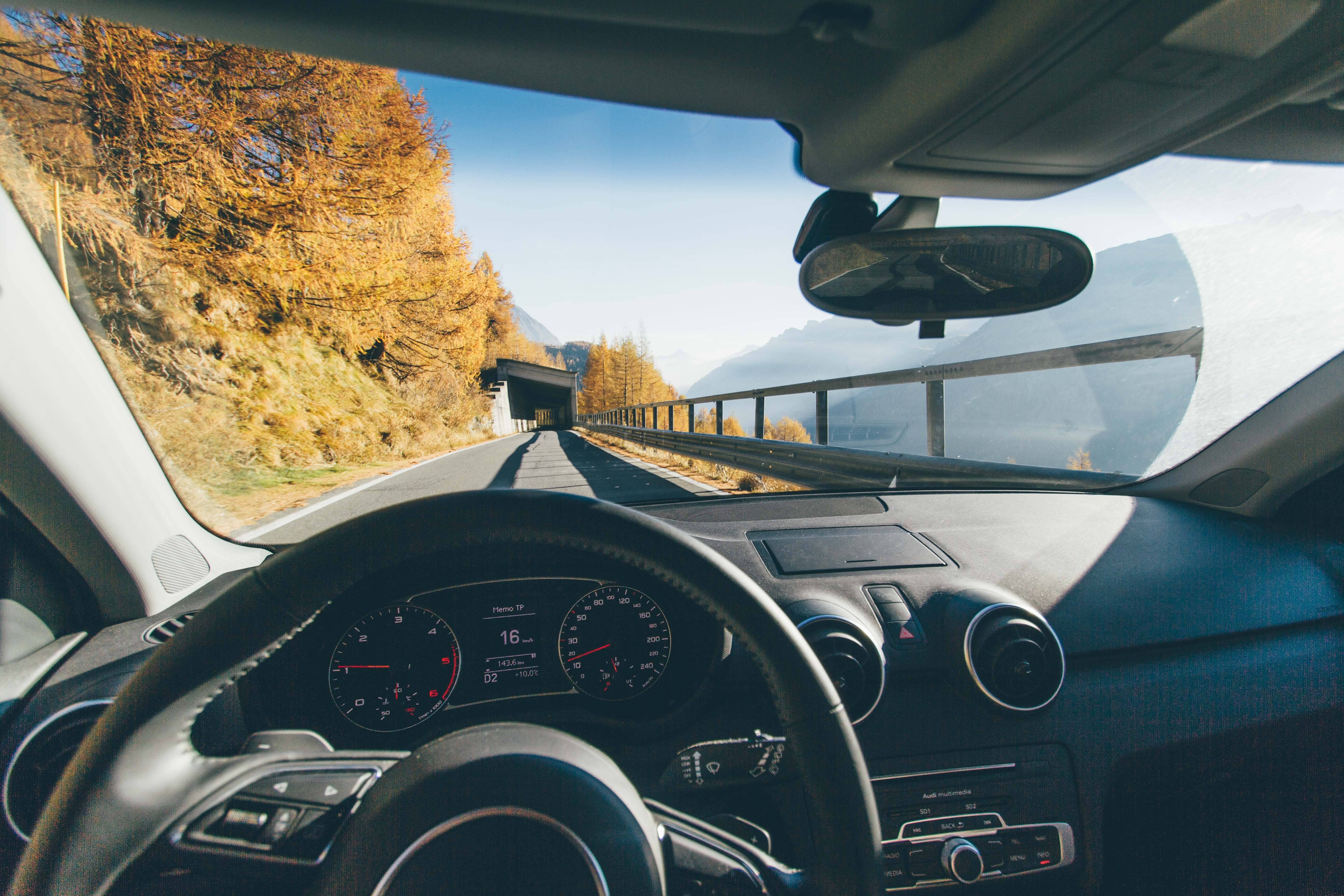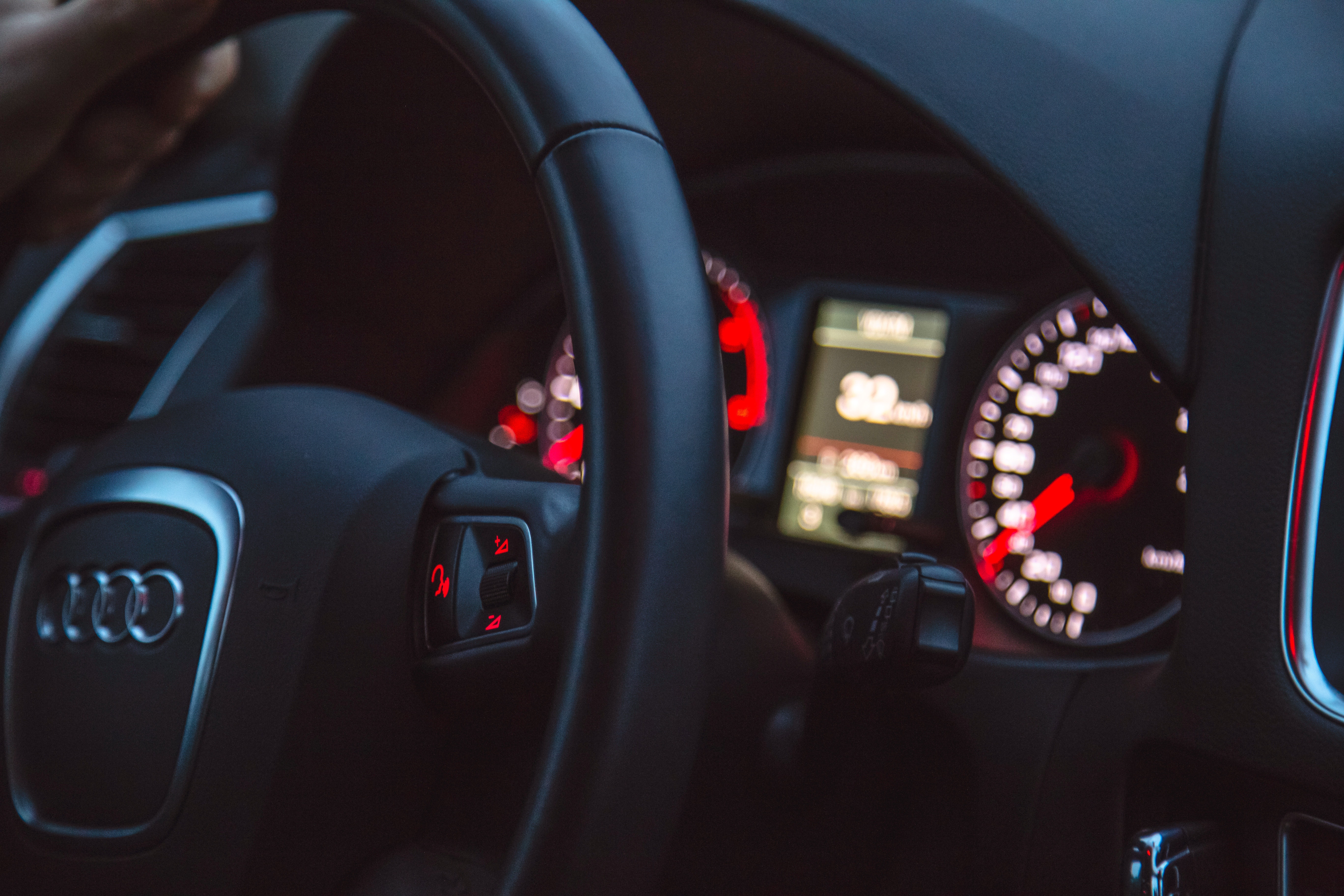There are more than 5 million vehicle crashes every year. Self-driving vehicles are expected to make the road safer, but it will be quite some time before most cars are driverless. Until then, these six car technologies are helping bridge the gap and making it safer to drive.
IMAGE: PEXELS
1. Lane Detection Systems
Many crashes happen because people fall asleep at the wheel (literally) or are distracted by something and veer off into the opposite lane.
Lane detection systems help drivers avoid potential collisions by alerting them when they start to go over the line. Some systems have audible alerts (loud beeps), while others deliver tactile warnings (vibrating seats or steering wheels). These immediate notifications allow drivers to change course and get back on track.
2. Backup Cameras
Before the invention of backup cameras and sensors, drivers relied on their rearview and side mirrors to park and back out of parking spaces. That made it impossible to see directly behind the vehicle.
Backup cameras expand a driver’s view by allowing them see things that were hiding out of their view. The camera’s feed is displayed. in full color, on a dashboard display. Color-coded lines act as guides when parking. Some vehicles also come equipped with sensors that will beep if the vehicle gets too close to an object while in reverse.
3. HID Lights
Of the 5-million-plus accidents that occur each year, about 22% of them are weather-related (about 1.2 million). Rain, sleet, snow, fog and severe wind make it more difficult to drive safely on the road.
When visibility is a problem, the road can quickly become a dangerous place. HID and LED lights may help improve visibility in these conditions.
“HID lamps produce light with an electric arc, as opposed to the glowing filament you see in a standard light bulb,” says Bestazy. “The ‘bulb’ or tube is filled with a noble gas, and often suitable metals or metal salts. The gas acts as a starter to enable the arc. Once it’s started, the heat evaporates the metals in the tube.”
HID kits can be purchased to transition to these brighter lights.
4. Automatic Braking Systems
Many modern vehicles come equipped with automatic braking systems to help drivers avoid collisions. These sensors, located on the front of the vehicle, detect when your vehicle is about to collide with the car in front of you. The system automatically applies the brakes to help you avoid a fender bender.
5. Park Assist
Parallel parking can be tricky. One wrong move and you could wind up colliding with another vehicle.
Park assist can help you avoid a collision by automatically steering you in and out of parallel parking spaces. You’ll still need to work the gas pedal and brake, but the vehicle will use sensors to guide itself perfectly into place.
6. Voice Controls
Voice controls make it easy to take a phone call, change your music station or get directions without ever having to take your eyes off of the road. These systems connect to the Bluetooth on your phone for hands-free use that lets you stay focused on the road ahead.
If you are interested in even more technology-related articles and information from us here at Bit Rebels then we have a lot to choose from.


COMMENTS